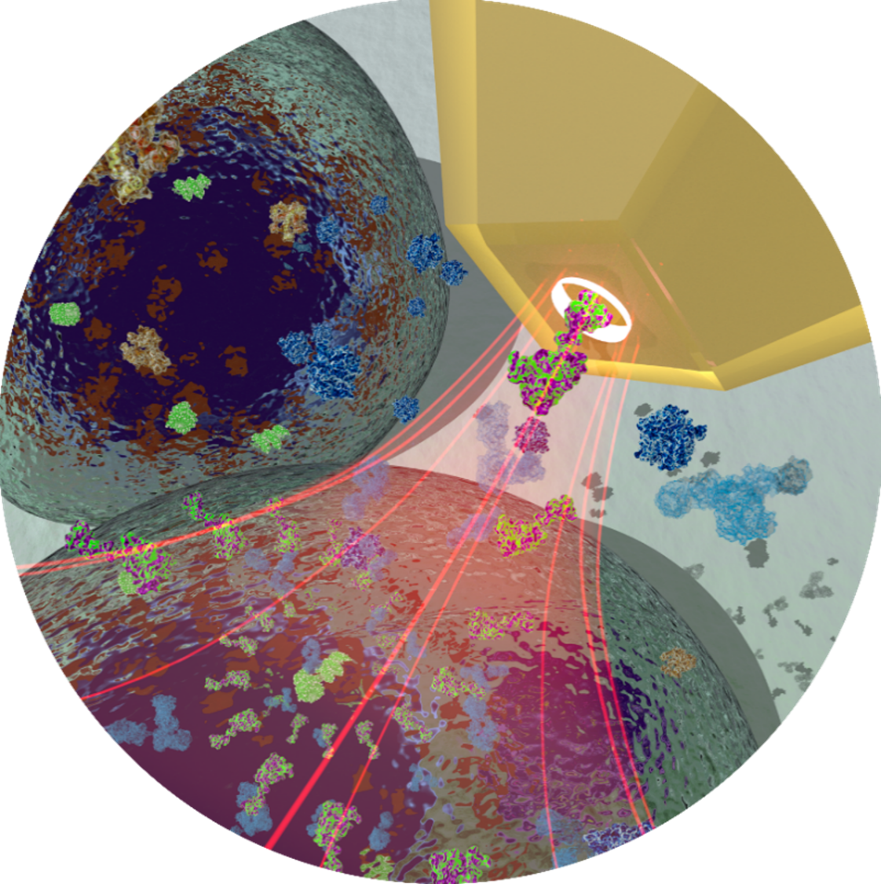Research
The Laboratory of Single-Molecule and Single-Cell Biophysics conducts interdisciplinary research of living cells and the biomolecules with which they moderate and control function, reproduction, activity and ultimately how this leads to macroscale biology.
Single-Molecule

The ability to sense and study single biomolecules allows biophysicists to probe the fundamental governing dynamics of life, enhancing our understanding of their emergent properties: from immunology to neuroscience.
Nanopore-based sensing allows analysis of biomolecules (such as DNA and proteins) with sub-nanometer resolution and without the need for labelling or amplification down to the single-molecule level. While solid-state nanopore sensors have become a common tool for analysis of single biomolecules’ structure, fresh ideas are required if we wish to push the sensing limits of this technique. At BMC, we are developing interfacial nanopores to probe ever smaller features of biomolecules and conduct in vitro studies of cell secretions.
Single-Cell

The genomics revolution, driven by single-molecule sequencing technologies, has greatly enhanced precision medicine. Similarly, single-cell proteomics and secretomics are poised to revolutionise our understanding of cells, contributing significantly to drug and cell-based therapy development. Currently lacking a gold standard, single-cell proteomics faces challenges in profiling live cells. We aim to enable single-cell profiling for in situ analysis of living cells by employing nanopore microscopy and novel mass spectroscopy techniques. We perform intracellular and extracellular recording of single-cells to monitor the dynamic process of protein production and secretion, aiming to understand complex biological processes such as immune cells activity and function.